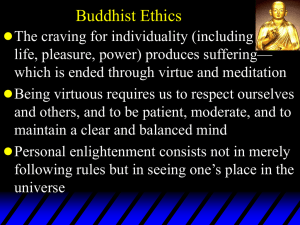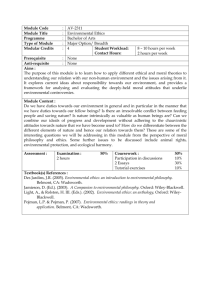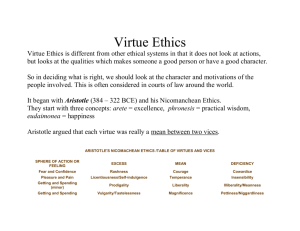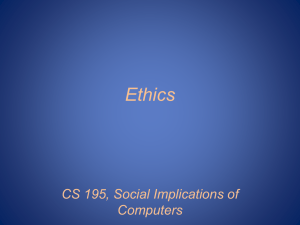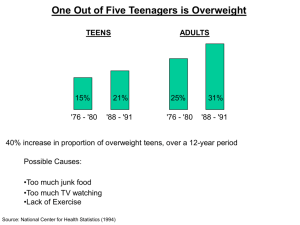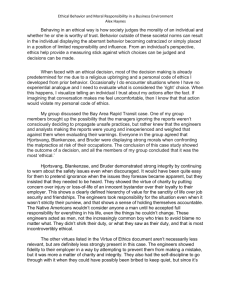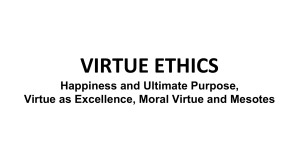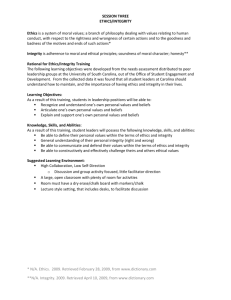Ethical Dilemmas - Week 2
advertisement
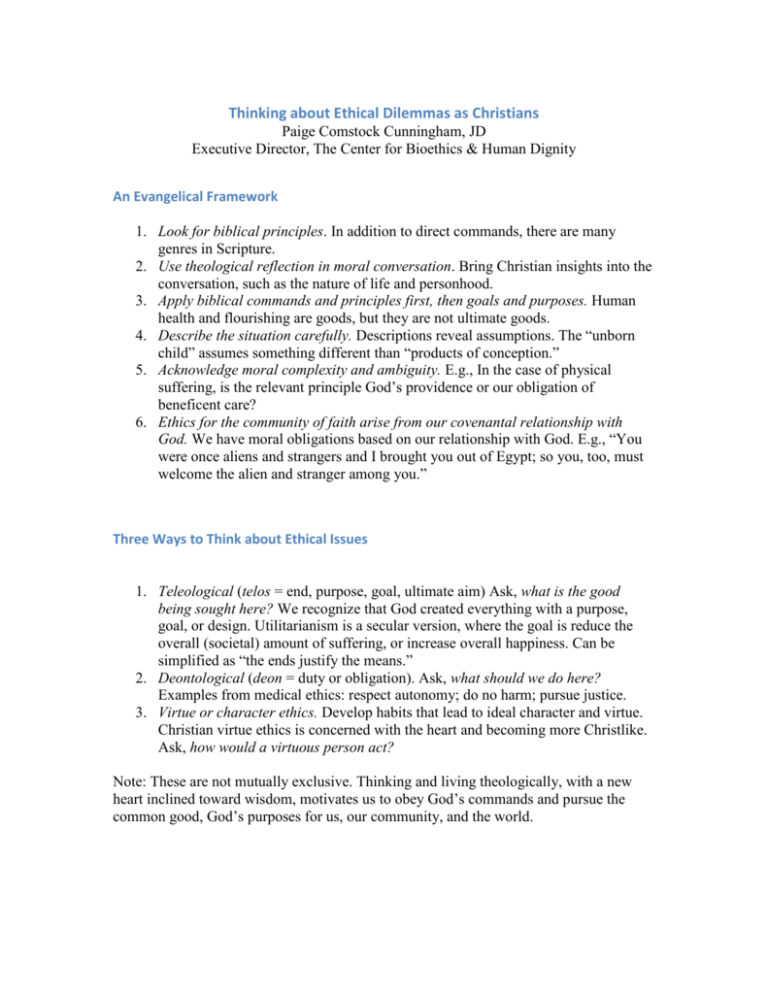
Thinking about Ethical Dilemmas as Christians Paige Comstock Cunningham, JD Executive Director, The Center for Bioethics & Human Dignity An Evangelical Framework 1. Look for biblical principles. In addition to direct commands, there are many genres in Scripture. 2. Use theological reflection in moral conversation. Bring Christian insights into the conversation, such as the nature of life and personhood. 3. Apply biblical commands and principles first, then goals and purposes. Human health and flourishing are goods, but they are not ultimate goods. 4. Describe the situation carefully. Descriptions reveal assumptions. The “unborn child” assumes something different than “products of conception.” 5. Acknowledge moral complexity and ambiguity. E.g., In the case of physical suffering, is the relevant principle God’s providence or our obligation of beneficent care? 6. Ethics for the community of faith arise from our covenantal relationship with God. We have moral obligations based on our relationship with God. E.g., “You were once aliens and strangers and I brought you out of Egypt; so you, too, must welcome the alien and stranger among you.” Three Ways to Think about Ethical Issues 1. Teleological (telos = end, purpose, goal, ultimate aim) Ask, what is the good being sought here? We recognize that God created everything with a purpose, goal, or design. Utilitarianism is a secular version, where the goal is reduce the overall (societal) amount of suffering, or increase overall happiness. Can be simplified as “the ends justify the means.” 2. Deontological (deon = duty or obligation). Ask, what should we do here? Examples from medical ethics: respect autonomy; do no harm; pursue justice. 3. Virtue or character ethics. Develop habits that lead to ideal character and virtue. Christian virtue ethics is concerned with the heart and becoming more Christlike. Ask, how would a virtuous person act? Note: These are not mutually exclusive. Thinking and living theologically, with a new heart inclined toward wisdom, motivates us to obey God’s commands and pursue the common good, God’s purposes for us, our community, and the world.


